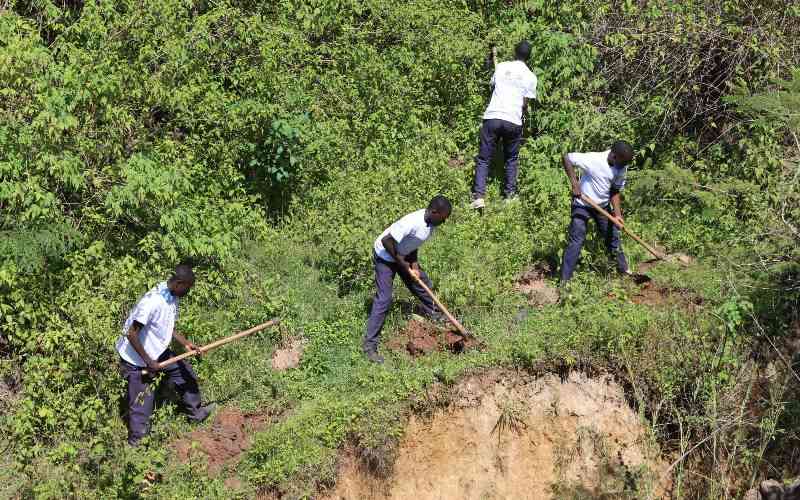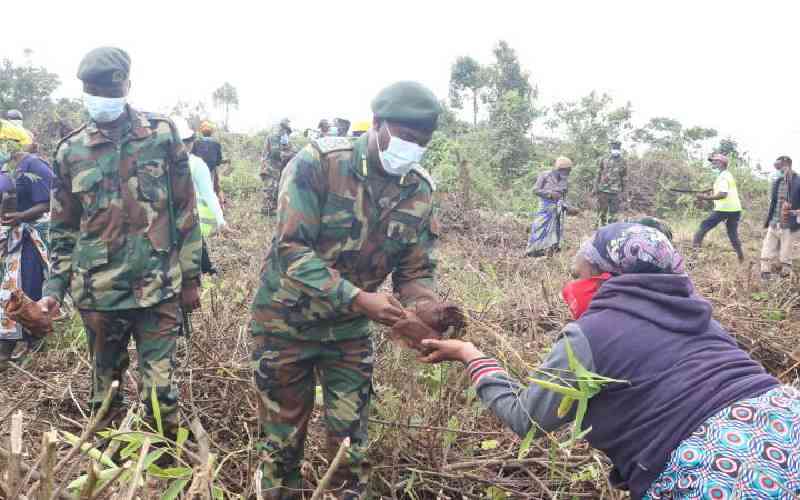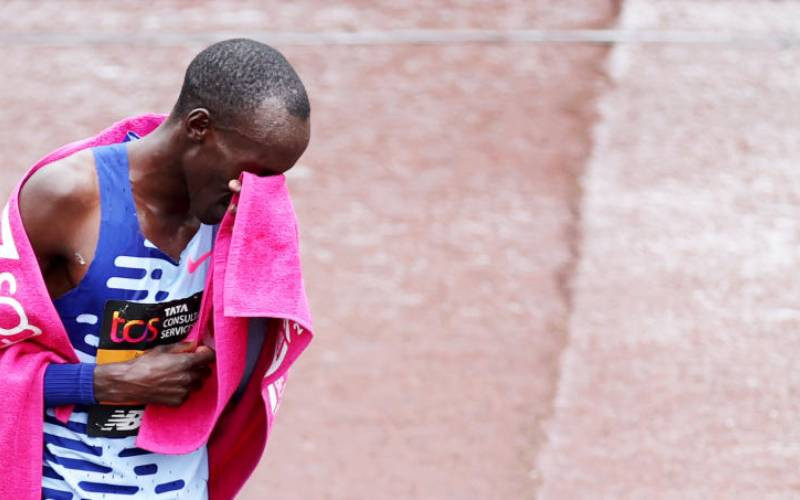On a two-acre farm in Shamakhokho, Vihiga County, Victor Mwanga Shiribwa has set up a bamboo empire to seek answers on reviving the dying Maragoli Hills, the crumbled Pan Paper Mills and possibly become one of the greatest bamboo traders.
When he bought the piece of land a few years ago, it was worthless, sloppy and irregular. But a look at how it has been transformed into a business hub leaves a lot to be admired.
“If we have to revive the Pan Paper Mills in Webuye, we should not encourage our people to plant more eucalyptus trees. Bamboo is the answer to making sure that the factory has a capacity that will never run out,” says Mwanga.
On his farm, there are over seven types of bamboo species, with the latest, Moso, imported from China when he made his trip there for further research on the plants, slowly taking root.
“I am probably among the first people in Kenya to have planted this species of bamboo,” says Mwanga.
Bambusa vulgaris, Bambusa Tulda, Dentrocalamus Gigantis, Dentrocalamus Asper, bush bamboo, Oxtenanthera Abysinia, and Moso, are among the species found in his farm.
In 2009, he planted bamboo just for the fun of it to beautify his home. But when it grew up so well, they got interested in it so much together with his wife and they started researching everything about the bamboo.
In the vast regions of the county, bamboo is grown, or sprouts in many places and no one wants to take care of it.
SUCCESS STORY
“Initially, we planted it for the sake of it, but when we realised the plant can grow so well here, we set our feet on the ground and decided to put all our energy into it and now we have gone crazy about bamboo,” says Mrs Mwanga.
Four green houses in the compound have 470,000 seedlings of bamboo set to be disposed of by end of January next year, which he says he sells to farmers across the counties in Western Kenya and beyond.
He says the seedlings, which he planted in November, take 40-60 days in the greenhouse before they are planted, and he expects to make over Sh100 million by selling them at the end of the month.
The mature bamboo are harvested and some value added to them through making containers for storing pens while in office.
SUPPLY CONTRACT
“People also buy the mature bamboo for making furniture and for firewood,” he says.
Stay informed. Subscribe to our newsletter
For Mwanga, bamboo farming in Vihiga County and the Western region at large is a success story basing on the favourable climatic conditions.
Apart from planting bamboo for commercial purposes, Mwanga is actively engaged in promoting the plant in the county.
So far he has initiated bamboo plots in nearly all primary schools in Shamakhokho ward, and other selected schools across the county.
“We have collaborated with the World Bank and the Garagori Water Users Association and grown over 120,000 bamboo plants along the two kilometre stretch of the River Garagori to purify it,” he says.
Already, he says Busia County has contracted him to supply them with bamboo seedlings worth thousands of shillings, which will be used to rehabilitate deforested regions.
Turkana County he adds is also in talks with him to see a possibility of rehabilitating regions that have been deforested over time.
With a single seedling going for Sh300, Mwanga says bamboo farming is not a bad business.
Although he is not currently so much interested in selling the plants, he says for a farmer with a two-acre farm, one can get Sh1.7 million upon harvesting the bamboo trees when they mature.
VARIED BENEFITS
“Farmers that we have engaged so far want to plant bamboo so much that we have forgotten about profit making and now we have concentrated on promoting the plant. We want as many homesteads to have the plant and exploit it for commercial purposes,” says Mwanga.
Reason as to why Mwanga decided to commercialise bamboo farming is because of its varied benefits as opposed to planting eucalyptus trees that are so common.
“Our people have ventured in planting eucalyptus trees because of their easy market and quick money, but they do not know that bamboo has even more quicker money and has varied benefits,” he says.
SIX-FIGURE SALARY
Apart from bamboo farming, Mwanga does dairy farming, poultry farming, breeding German shepherd dogs, planting bananas, and planting some maize for home consumption. He also adds value to harvested bamboo plants and sells them to institutions or to people who come to visit his farm.
He notes that if farmers will not sell raw bamboo, but instead add value to it, it brings in more returns. Having quit a six-figure salary in Nairobi two years ago, to concentrate on his bamboo farming, Mwanga says he has no regrets settling in the village.
 The Standard Group Plc is a
multi-media organization with investments in media platforms spanning newspaper
print operations, television, radio broadcasting, digital and online services. The
Standard Group is recognized as a leading multi-media house in Kenya with a key
influence in matters of national and international interest.
The Standard Group Plc is a
multi-media organization with investments in media platforms spanning newspaper
print operations, television, radio broadcasting, digital and online services. The
Standard Group is recognized as a leading multi-media house in Kenya with a key
influence in matters of national and international interest.
 The Standard Group Plc is a
multi-media organization with investments in media platforms spanning newspaper
print operations, television, radio broadcasting, digital and online services. The
Standard Group is recognized as a leading multi-media house in Kenya with a key
influence in matters of national and international interest.
The Standard Group Plc is a
multi-media organization with investments in media platforms spanning newspaper
print operations, television, radio broadcasting, digital and online services. The
Standard Group is recognized as a leading multi-media house in Kenya with a key
influence in matters of national and international interest.








